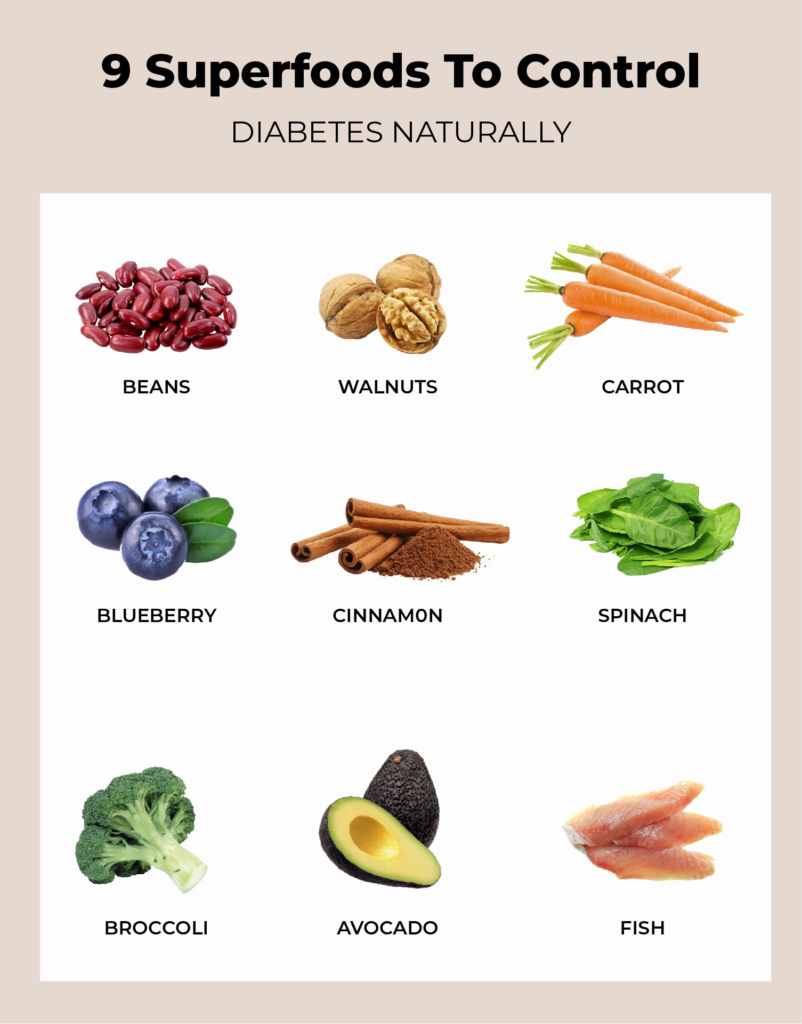Diabetes is a chronic disease that occurs either when the pancreas does not produce enough insulin or when the body cannot effectively use the insulin it produces. Insulin is a hormone that regulates blood glucose. When you have diabetes, high blood sugar for a period of time can damage your blood vessels. This can sometimes lead to heart attacks and strokes. Diabetes can cause damage to your kidneys over a long period of time making it harder to clear extra fluid and waste from your body.
Classification of Diabetics

Signs and symptoms of diabetes
- Toilet – going for a wee a lot, especially at night.
- Thirsty – being really thirsty.
- Tired – feeling more tired than usual.
- Thinner – losing weight without trying to.
- Genital itching or thrush.
- Cuts and wounds take longer to heal.
- Blurred eyesight.
- Increased hunger.
The insulin-producing cells have been attacked and destroyed by your immune system. This is why type 1 diabetes is known as an autoimmune condition. Type 2 diabetes isn’t an autoimmune condition. Your body isn’t making enough insulin or what it makes isn’t working properly.
Causes of Diabetics
Over time, diabetes can damage blood vessels in the heart, eyes, kidneys and nerves. People with diabetes have a higher risk of health problems including heart attack, stroke and kidney failure. Diabetes can cause permanent vision loss by damaging blood vessels in the eyes.
Symptoms of hyperglycemia include:
- Urinating large amounts.
- Excessive thirst.
- Feeling tired.
- Frequent hunger.
- Dry mouth.
- Weight loss.
- Blurred vision.
- Recurrent infections (e.g., urinary infections, skin infections)
The exact cause of most types of diabetes is unknown. In all cases, sugar builds up in the bloodstream. This is because the pancreas doesn’t produce enough insulin. Both type 1 and type 2 diabetes may be caused by a combination of genetic or environmental factors.
Remedies of Diabetics
Taking insulin or other diabetes medicines is often part of treating diabetes. In addition to making healthy food and beverage choices, getting physical activity, getting enough sleep, and managing stress, medicines can help you manage the disease.
Diet for Diabetic Patient
Mediterranean diet for Diabetic patient
- Plenty of fruits, vegetables, whole grains, beans, nuts, and seeds.
- Olive oil as the main source of fats.
- Low to moderate amounts of dairy, eggs, fish, and chicken.
- Limited amounts of red meat, sweets, added sugars, and highly processed foods.
Here are some of the best food choices for diabetic patients:

- Green Leafy Vegetables – Green, leafy vegetables are a key plant-based source of potassium, vitamin A, and calcium. They also provide protein and fiber. Some researchers have found that eating green, leafy vegetables can benefit people with diabetes due to these plants’ high antioxidant and fiber content.
- Antioxidant- Cinnamon – Because cinnamon is unproven as a treatment, there isn’t a set dose. Some experts suggest 1/2 to 1 teaspoon (2-4 grams) of powder a day. Some studies have used between 1 gram and 6 grams of cinnamon. High doses might be toxic.
- DHA Rich – Fatty Fish – If you have diabetes, try to eat at least one portion of oily fish a week and one portion of white fish such as cod or haddock. “When it comes to getting more oily fish into your diet think SMASH – salmon, mackerel, anchovies, sardines and herring,” says Furniss. “And don’t just think about fish for dinner.
- Dietary Fiber: Chia Seeds – Chia seeds are high in fiber. Studies show that fiber may help to reduce insulin resistance and improve blood sugar levels, reducing your risk of metabolic syndrome and type 2 diabetes .
- High Protein- Greek Yoghurt – If you have diabetes, it may be better to choose Greek yogurt because it contains fewer carbohydrates than regular yogurt. In addition, its higher protein content will make you feel full more quickly.
- Flaxseed Lignans – Flaxseed is exceptionally rich in both soluble and insoluble fiber. Soluble fiber is known to help stabilize blood sugar levels by slowing down the digestion of sugars in the food, which is particularly beneficial for individuals with diabetes.
- Fiber- Rich Nuts – Almonds are one of the best nuts for diabetics to eat. They contain antioxidants that combat oxidative stress, a significant contributor to diabetes and heart complications. Almonds provide essential nutrients such as fibre, vitamin E, magnesium, and vitamin B12.
- Fermented Apple Juice- Apple Cider Vinegar – There’s no ‘best’ alcoholic drink for people with diabetes. If you’re going to drink, it’s good to be aware of all the facts so you can choose the types of drinks best for you: Avoid low-sugar beers and cider – sometimes called diabetic drinks. They might have less sugar, but there’s more alcohol in them.
The long-term effects of diabetes include damage to large and small blood vessels, which can lead to heart attack and stroke, and problems with the kidneys, eyes, feet and nerves. The good news is that the risk of long-term effects of diabetes can be reduced.
For more about careers in Medical field, visit on http://www.icareerkick-mgs.in